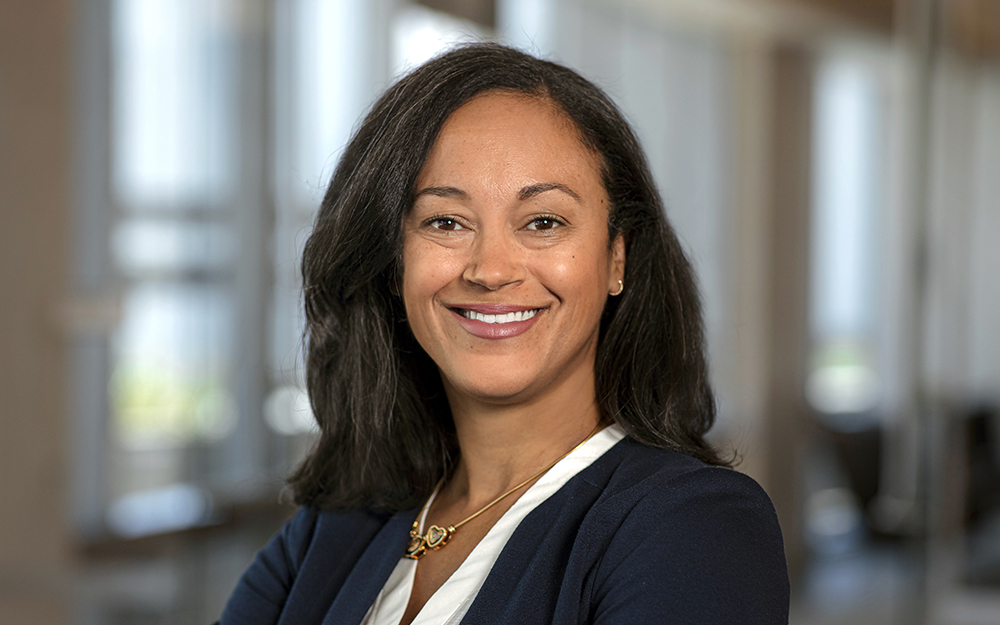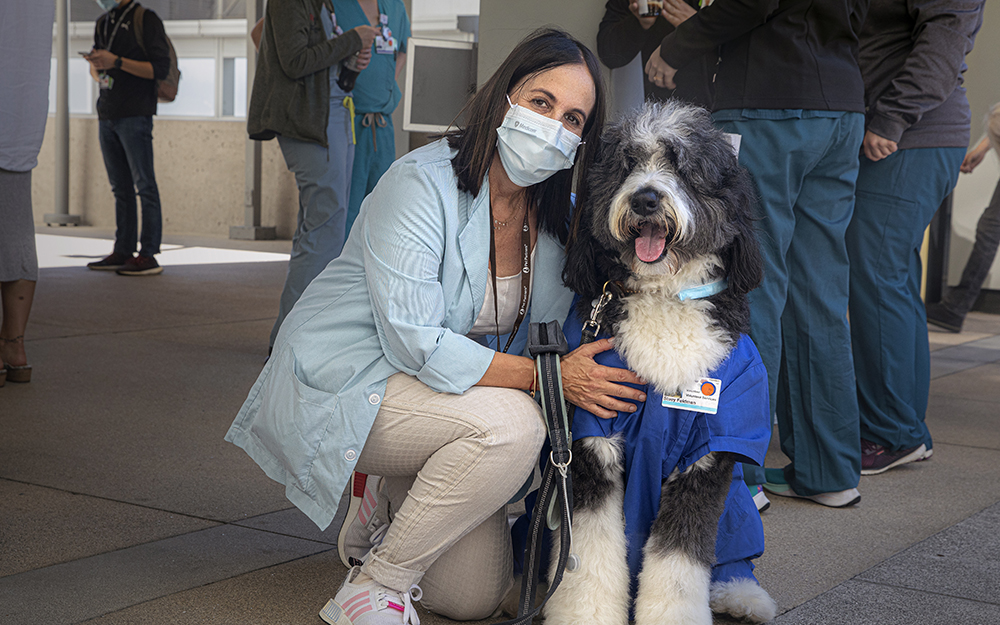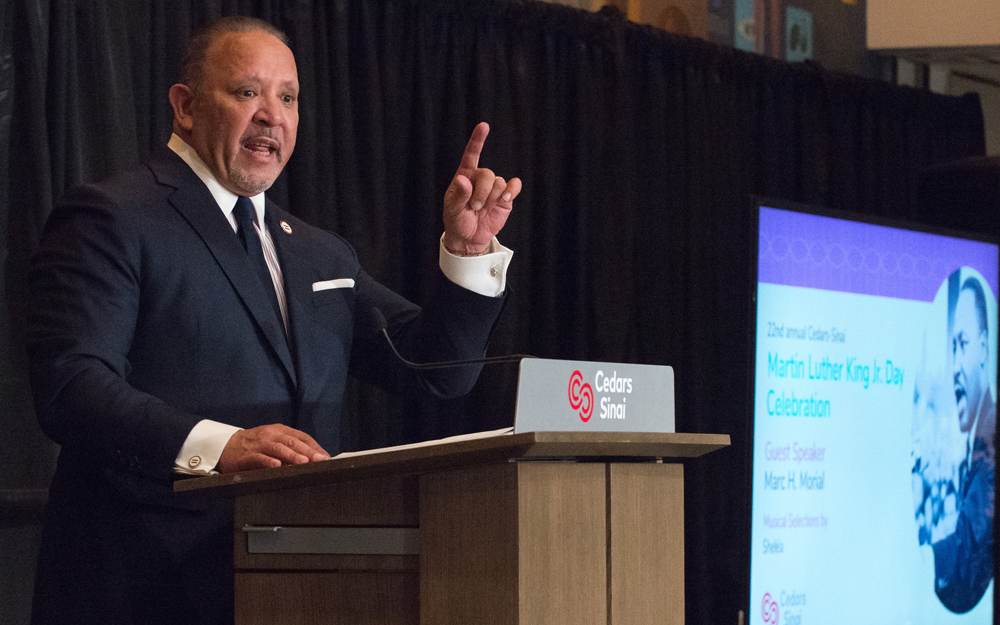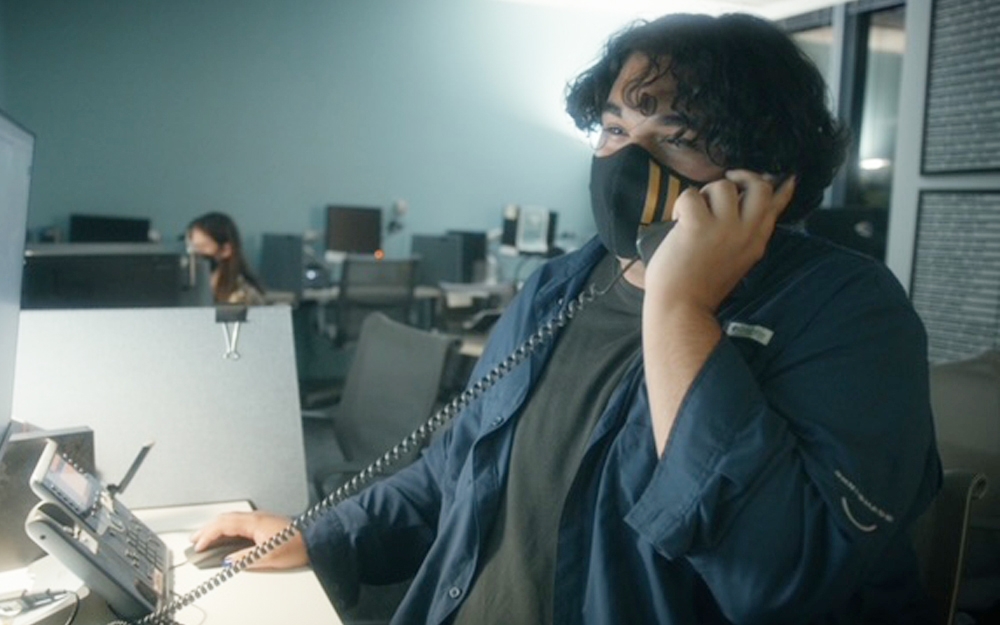Faces of Cedars-Sinai: Chief Health Equity Officer Dr. Christina Harris
Date
September 16, 2022

Date
September 16, 2022
Credits
Medical providers featured in this article
In Brief
{{cta-block}}
Nearly every year on Christmas Day while she was growing up, Dr. Christina Harris navigated between two worlds.
As Dr. Harris fondly remembers it, she would begin her day at home in San Diego with her mom and her Irish American grandmother. They would listen to songs by Bing Crosby and enjoy a 2 p.m. dinner of roast beef and potatoes.
"It was a relaxed, PJs-all-day sort of vibe that I still try to re-create with my family," says Dr. Harris.
Then she would be picked up by her father, an Afro-Latino immigrant from Cuba, and they would head to his home in South Los Angeles. On arrival they would be greeted by a house full of relatives, a platter of plantains and Celia Cruz playing on repeat until late into the night.
That bicultural upbringing, Dr. Harris says, taught her to appreciate both the magic of diversity and the commonality that ties us all together. It is one of the factors that has inspired her focus on equity, diversity and inclusion throughout her career in medicine. And now, as Cedars-Sinai's new chief health equity officer, she will work to overcome disparities in healthcare experienced within the organization and in the community.
"Inequities in care and in medicine are not new. Yet, it's an exciting time in medicine, because we are at the phase where we are starting to take action about them on a broader scale."
More momentum for change
Dr. Harris says she is coming into new her role at a time when, throughout the country, there is more momentum for change than ever and a willingness to address healthcare disparities.
"Inequities in care and in medicine are not new," says Dr. Harris, an internist. "We've known about them for a very, very long time."
"Yet, it's an exciting time in medicine, because we are at the phase where we are starting to take action about them on a broader scale."
As a child, Dr. Harris says, topics such as becoming a doctor or working in healthcare in general weren't on her radar screen.
"I don't remember having these conversations around the dinner table," says Dr. Harris, an only child whose parents divorced when she was young.
She lived mainly with her mother, who was a waitress in San Diego, but would spend weekends and summers with her father, a loan officer for a community organization in Inglewood.
Entering the world of medicine
Dr. Harris has few childhood memories of even going to see a doctor. As a student, though, she excelled at math and science and received encouragement to consider a career in medicine.
That idea gained momentum while Dr. Harris was a second-year biology student at the University of Southern California (USC) and was handed a brochure about a summer program for underrepresented students considering going into medicine. She applied and was accepted and then was off to Nashville, where she met faculty at Fisk University and Meharry Medical College, both historically Black schools, and at Vanderbilt University's medical school.
"That's when I had my first real conversation with a physician," Dr. Harris says. "I got to be in the emergency room, which was so exciting. It was just this realization that, 'Oh, this is a whole world that I think I might want to be part of.'"
"It really showed me what I had not been shown before—people who looked like me doing this job. And so that really was very influential for me."
In CS Magazine: Cedars-Sinai Grants for Health Equity
Structural barriers to providing care
After USC, Dr. Harris was off to Harvard Medical School, followed by her internship and residency at New York-Presbyterian/Weill Cornell Medical Center in New York City. The training in New York—where she cared for patients at both extremes of the socioeconomic spectrum—galvanized her interest in health equity.
"With many of my patients, I could see how structural barriers interfered with being able to provide a level of care that I knew each person deserved," she says.
After her residency, Harris stayed in New York and worked for close to five years at a federally qualified health center, a facility that cares for medically underserved areas and populations. She returned to Los Angeles in 2013 to join the faculty of the David Geffen School of Medicine at UCLA.
At UCLA, Harris became associate director for the internal medicine residency program. In addition, she was associate vice chair of Equity, Diversity and Inclusion for the UCLA Department of Medicine, a position she helped create. She also continued to see patients as a primary care physician at the West Los Angeles VA Medical Center.
Well suited for her new role
Dr. Caroline Goldzweig, chief medical officer of the Cedars-Sinai Medical Network, was associate chief of the Division of General Internal Medicine at the West Los Angeles VA Medical Center when Dr. Harris joined the division. She became friends with Dr. Harris and describes her as a "fantastic physician" and as someone who "has a heart."
"She's very serious about work, but she's also just a very spirited and fun person," Dr. Goldzweig says.
"Dr. Harris is well suited for her new role at Cedars-Sinai in that she has cared for patients in underserved communities and for veterans of all backgrounds. She understands the barriers that people face when getting care or interacting with our complex health systems."
Walking the walk
Dr. Richard V. Riggs, chief medical officer at Cedars-Sinai, says that Dr. Harris will bring to her role a good understanding of Los Angeles and the rich diversity of its communities. She has a strong "internal compass"—a commitment to fairness and justice—that guides her pursuit of health equity, he says.
"One of the things that impressed me about Christina is that she has been doing this type of work ever since she finished her training," Dr. Riggs says. "She's walked the walk on this."
An equal opportunity to achieve health
At Cedars-Sinai as well as throughout U.S. healthcare, Dr. Harris says, it will take a sustained effort to overcome disparities that have been many years in the making.
"There's really no space, no department or no office that health equity doesn't touch," Dr. Harris says. "If I'm doing my job right, I will be working with everyone to keep doing what they do, but with a more equitable lens, and to think about outcomes, patient experiences and impact on the community."
"The aim is ensuring that everybody has this equal opportunity to achieve health. That's why we're here."





